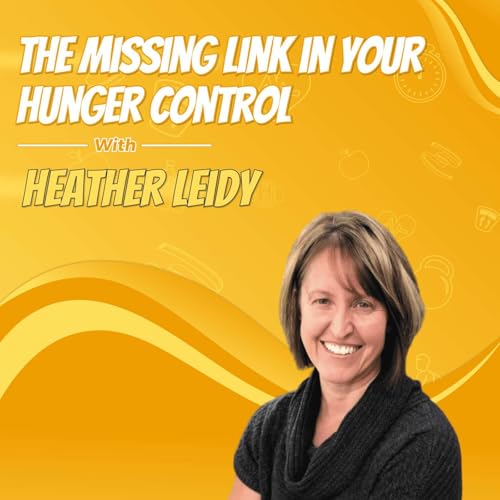
The Missing Link in Your Hunger Control with Heather Leidy
Failed to add items
Add to basket failed.
Add to Wish List failed.
Remove from Wish List failed.
Follow podcast failed
Unfollow podcast failed
-
Narrated by:
-
By:
About this listen
Protein is everywhere these days. Walk down any grocery aisle and you'll see "high protein" splashed across cereal boxes, snack bars, and even ice cream. Scroll through social media, and influencers are preaching about protein powder. But with all this noise, what does the science actually say about protein's role in weight management?
If you've ever wondered whether protein really lives up to the hype or if you're struggling with constant hunger, afternoon snacking, or hitting weight loss plateaus, this episode cuts through the confusion. You'll discover the research-backed truth about how much protein you actually need, when to eat it for maximum benefit, and why your breakfast might be the key to controlling your appetite all day long.
Join Holly and Jim as they sit down with Dr. Heather Leidy, one of the world's leading researchers on protein and satiety. Dr. Leidy is a nutritional physiologist and associate professor at the University of Texas at Austin who has spent two decades studying how protein impacts hunger, fullness, and eating behavior. She served on the 2020 Dietary Guidelines Advisory Committee, and her groundbreaking research focuses on the power of protein, especially at breakfast, for appetite control and weight management.
Discussed on the episode:
- The surprising reason protein shakes might not make you feel as full as whole protein foods
- Why 30 grams of protein at breakfast could be your secret weapon against afternoon cravings
- The specific amount of protein you need per meal (and per day) for optimal satiety and weight management
- How protein requirements change as you age and why older adults need significantly more
- The truth about animal vs. plant protein for hunger control
- Why people taking GLP-1 medications face unique protein challenges
- What brain imaging studies reveal about protein's effect on food cravings
- The one timing mistake that could sabotage your protein strategy
- Whether you can really damage your kidneys by eating too much protein
- How to make high-protein breakfasts work for busy families
Resources Mentioned:
- Beneficial effects of a higher-protein breakfast on the appetitive, hormonal, and neural signals controlling energy intake regulation in overweight/obese, “breakfast-skipping,” late-adolescent girls
- Protein "requirements" beyond the RDA: implications for optimizing health



